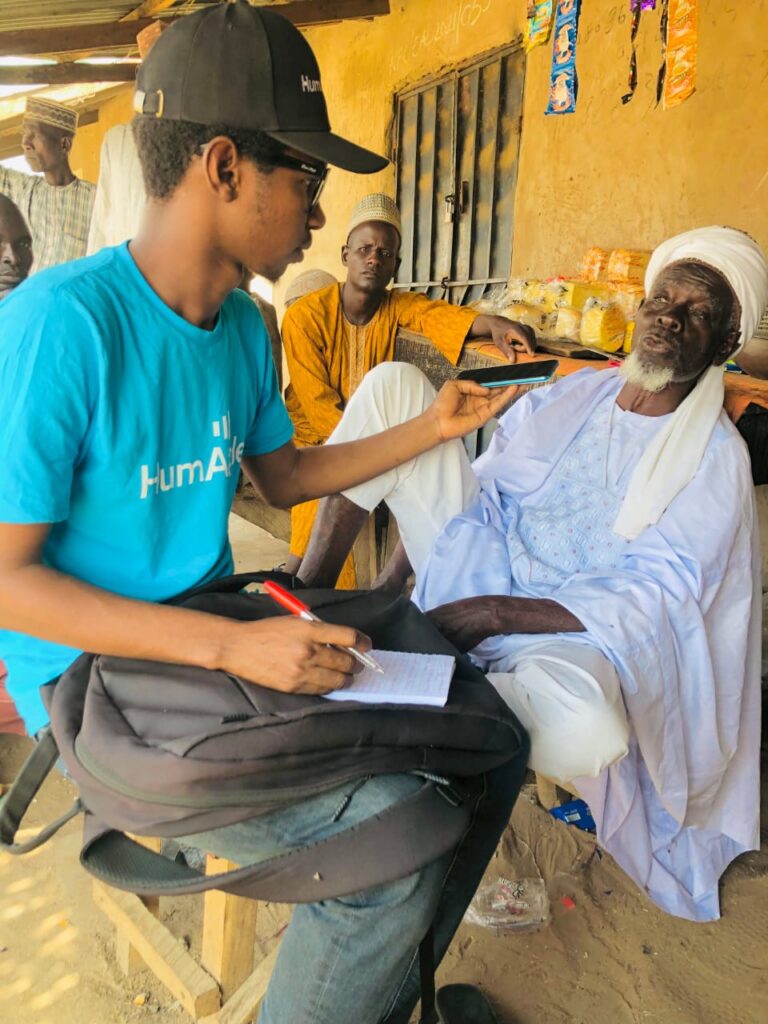
Welcome to another edition of the HumAngle Accountability Newsletter to keep you up-to-date on the activities of our fellows in Borno, Adamawa and Yobe. This month, the fellows were kept busy carrying out a range of activities at the grassroots, from advocacy and documenting important stories across different communities in the BAY states.
What have they been up to?
Aisha in Yobe visited a primary school in Kasaisa, where there are over 500 children enrolled but barely have an attendance of up to a hundred pupils daily, primarily due to a lack of water. Community outreach and advocacy for a solution for the lack of water and out-of-school children is already underway. Naja’atu is also working on a similar project around out-of-school children, visiting three different LGAs to assess the situation.
Aliyu has Jakusko, Karasuwa and Yusufari local governments to discuss the issues and the problems associated with the lack of transparency and accountability in the areas of education, health and availability of water, how it affects the community and a possible way forward to address it.
In Borno, Ijani has been occupied working on a documentary in Gwoza. But has unfortunately encountered a few setbacks in travelling there due to the current cash scarcity biting hard across the country. Aisha was part of our Vestiges of Violence podcast production and also engaged in stakeholder meetings in three different IDP camps. This month, Abubakar worked on a report on the plight of parents with children out of school. If you missed it, continue reading to find it below.
And in Adamawa, our fellows Nazir, Yasmin and Saduwo did a lot of stakeholder engagement with religious and traditional leaders. Saduwo in particular, through his sensitisation on SGBV in Numan local government area of the state, are now aware of the centre to refer themselves to, to seek free help and treatment after cases of rape. A 2-year-old victim has already begun receiving care.
The Election Insecurity Tracker
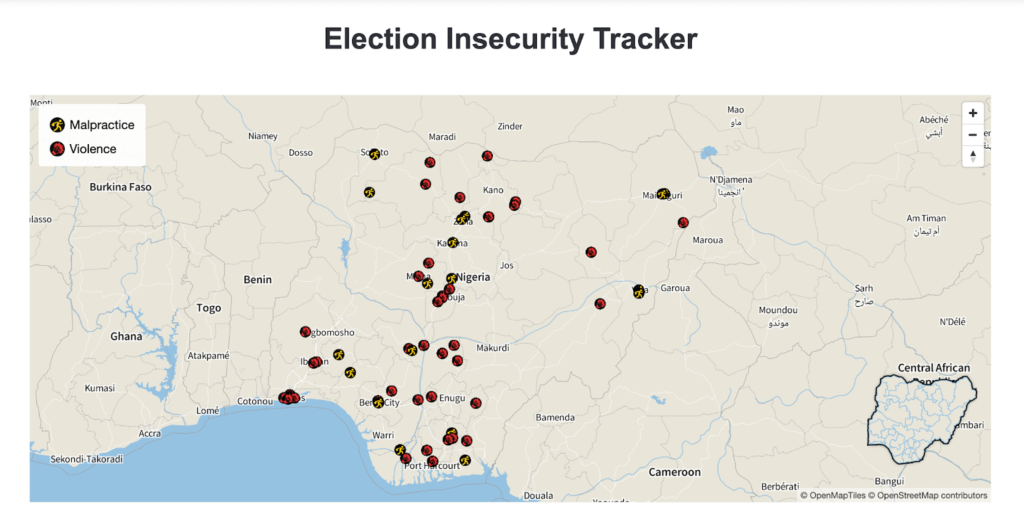
HumAngle has also diligently followed the election trends nationwide with our Election Insecurity Tracker.
As Nigerians exercise their civic duties of electing a new leader, we’ve taken it upon ourselves to keep abreast of the violence and security threats unfolding across the country.
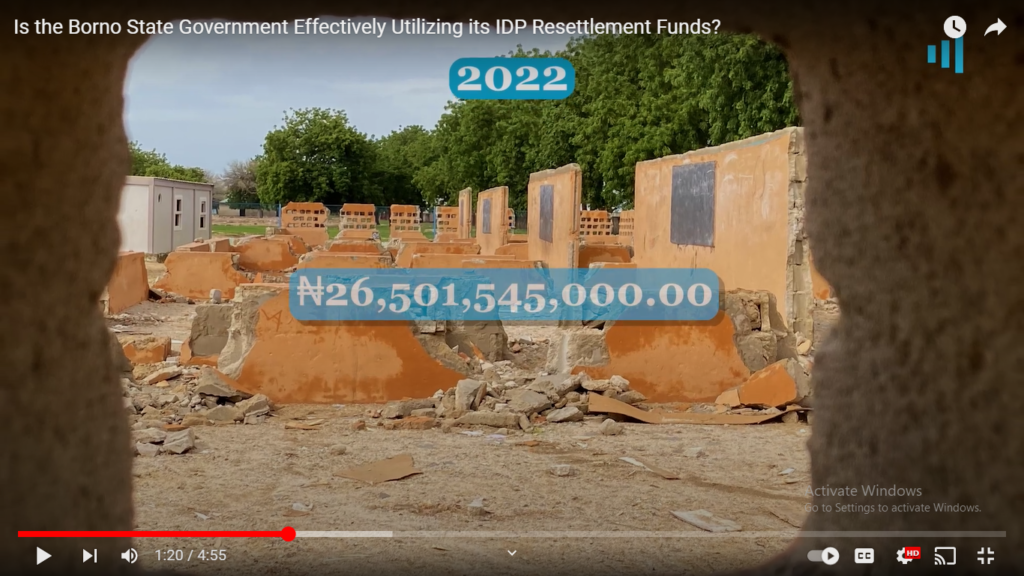
In this month’s episode of our explainers under our MacArthur project, we look at Borno state’s spending of funds allocated for resettling IDPs in the state.
Watch it here, alongside all other explainer videos on our YouTube page, to glimpse accountability gaps in Nigeria’s security and humanitarian sector.
The Plights Of Parents Of Nigeria’s Displaced,
Out-Of-School Children
Inadequate and dysfunctional school infrastructure, lack of qualified teachers, and poor livelihood are among the major factors hindering the education of children affected by the Boko Haram insurgency.

Bulama Kaya has been displaced from the Kaya community in Konduga, Borno State, since 2015, following a series of attacks by terrorists.
Today, his 13 children are part of over a million internally displaced kids within school age in Nigeria but do not have access to quality education, severely limiting their prospects.
“I wish to take my children to school, but I can’t. The government appears to have ignored education. There are only private schools around. So, I have to choose between feeding my children and taking them to school.
CSOs Team Up To Promote Human Rights In Borno
Some civil society organisations recently met to discuss how residents of Borno, northeast Nigeria communities could be part of decision-making processes that safeguard human rights.
By Aisha Tijjani Jidda
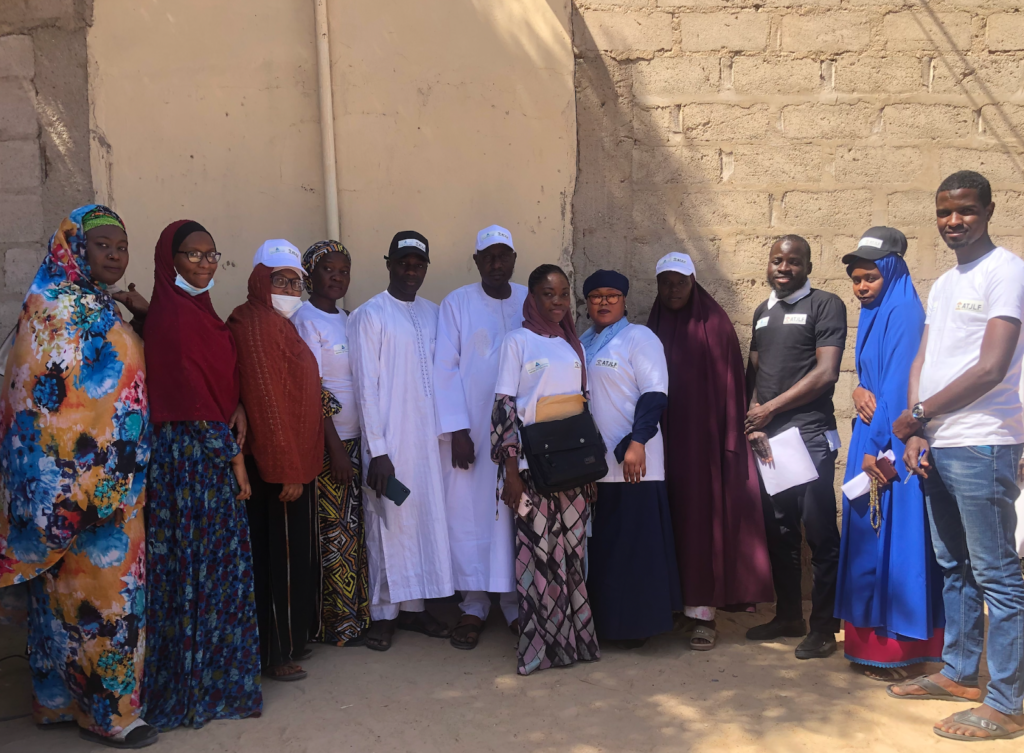
In a bid to tackle out-of-school children, violation of human rights, and gender-based violence, the Partners West Africa Nigeria (PWAN), in collaboration with the Criminal Justice Network (CJN), conducted a 3-day advocacy campaign in some communities in Maiduguri, Borno State.
The communities visited are Dala Lawanti, Mashidamami and Bulabulin Garnam.
Speaking at the event on Thursday, Feb. 9, Yusuf Mohammed, Secretary General of CJN, said the group aims to build partnerships between communities and criminal justice stakeholders.
“People should know their civic rights and the rights of the government. Allowing children to roam on streets and hawking will result in problems.”
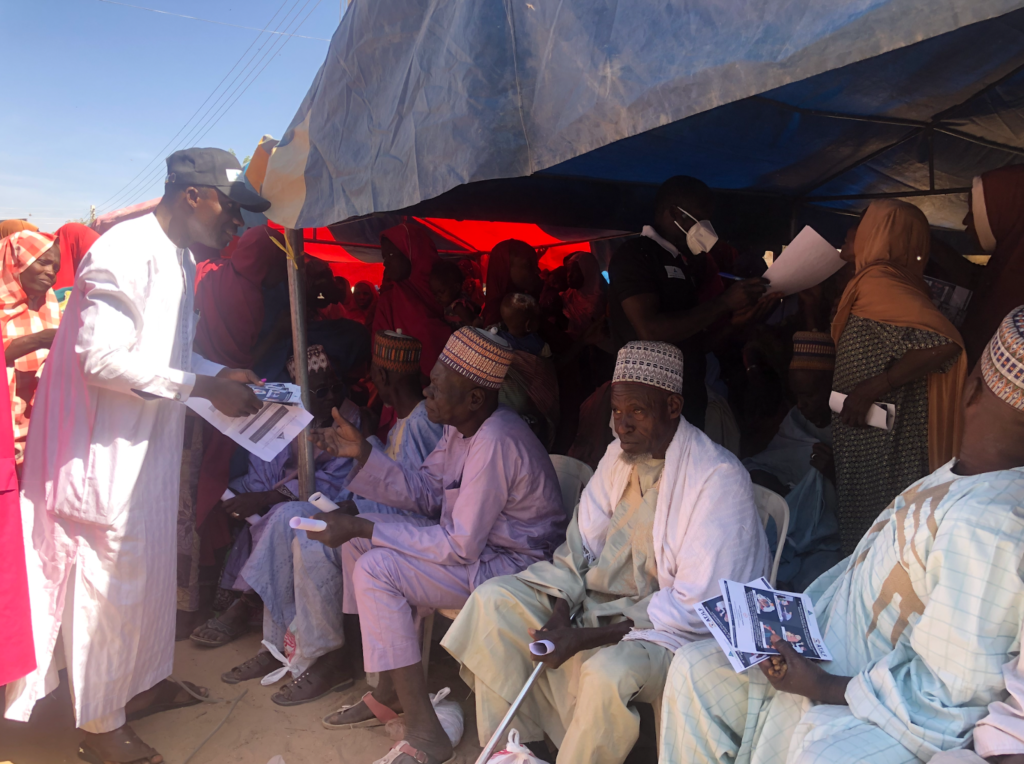
Liya Hassan, legal clinic officer at PWAN, added that the organisation’s findings revealed that most Borno women are unaware that being maltreated is a human rights violation.
“Many people do not know their rights, and they are just living in ignorance.”
While residents expressed their displeasure over the lack of infrastructure development in their communities, the groups urged their communities’ heads to unite themselves and complain to government officials who will address their challenges.
The CSOs said the purpose of the sensitisation campaign was to ensure that community members are well informed and actively participate in the decision-making process made by the government.
Aisha Tijjani Jidda is a 2023 HumAngle Accountability Fellow from Borno, Nigeria.
The Molestation Of Minors; From A Mother’s Perspective

With a rippling voice and tears welling up in her eyes, Benjamin Laman, 41, took our reporter through a torturous memory lane of how her two minors were raped by her neighbour, identified as Sunday, in 2021.
She noticed that her daughters aged six and four were always screaming as she washed their private parts when taking their baths.
Curious about the development, Laman confided in her friend, who concluded that the children’s discomfort was due to the medicated soap used for them.
Once Intimate, Two Adamawa Communities Torn Apart By Land Dispute
A conflict that began with a verbal attack over farmlands has degenerated into violent attacks, causing deaths and destruction of properties in Northeast Nigeria.

Haruna Ali, 96, is one of many residents affected by the violent disputes between the Lunguda and Waja communities in Lamurde, Adamawa state.
He told HumAngle the violence ruined his business and also separated him from his relatives.
“At this age, where will I go? I was born and raised here. I got married, have children and grandchildren here. All these things changed overnight as I moved from being a rich person to someone living on aid,” he said.
“My son was slaughtered because of this horrific land conflict that has nothing to do with us. I am not even a farmer. I am a contractor. Yet, people fail to see that violence doesn’t distinguish.”

